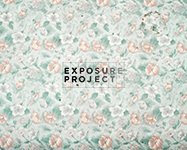You can read the entire interview here.

Jan Tumlir: Thomas Crow described your use of digital technology as opening up the "occult potential" of, I suppose, representation. How do you understand that word, "occult," in regard to what you're doing here?
Jeff Wall: I think it has to do with the fact that, before photography, the coexistence of separate domains in pictures was taken for granted. Paintings showed angels or demons interacting with humans, for example, as a routine matter, because it is routine within the nature of the medium. Painting and drawing make no demand as to the ontological consistency of the things being depicted; they don't have any means to do so, and that's one of the main reasons they've been so significant in the history of the imagination. Photography seemed to be something quite different, at the beginning; it seemed to prove that there was only one world, not many-one visible world, anyway. But I think that is only a suggestion made by photography, not a conclusion. And the suggestion can be taken in so many different ways. I think photography, by nature, does have artistically legitimate routes of access into the aesthetic of "multiple worlds," of "imaginary ontologies."
Jan Tumlir: In the late '80s, the questioning of the veracity of the photograph was still the main thing. But in the '90s, we became more aware of the fact that the camera actively creates certain realities, it promotes behaviors, the building of things, the changing of things. It as a real impact on the world.
Jeff Wall: I think the process of deconstructing photography as a rhetoric has reached a point of exhaustion. This line of inquiry did not succeed in providing an alternative to our acceptance of a physical basis for the photographic image. We haven't progressed beyond where we were when the medium was new, and we won't. Photography is what its first practitioners said it was--pictures created by the controlled actions of nature, of light reflected from surfaces. Nevertheless, we have only been able to suggest what that means for the actual practice of photography. In the 1970S and '80s, people attempted to develop theories of photography, maybe because the process of deconstruction encouraged them to feel that we understood what photography was. Now I feel there's are treat from that, not in the sense of a defeat or a reaction, but in the sense of increased respect for photography as a medium, a process, even an institution.
Flooded Grave, 1998-2000
Image © Jeff Wall



